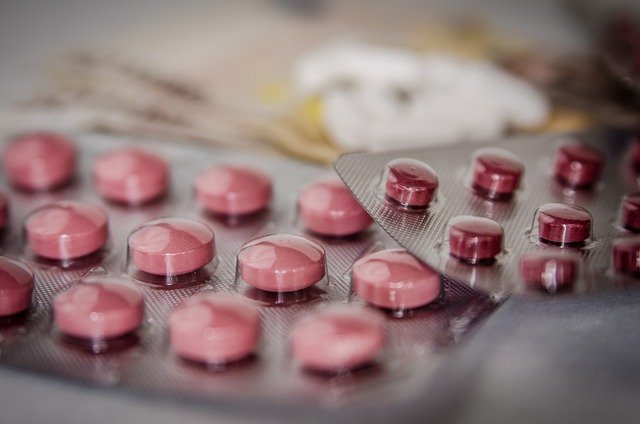Boosting Female Desire Safely: A Comprehensive Guide to Libido Supplements
Many women experience fluctuations in libido at different stages of life, often due to stress, hormonal changes, or lifestyle factors. While low desire can affect relationships and self-confidence, there are safe and effective ways to naturally enhance female libido. From scientifically backed supplements to lifestyle adjustments, understanding your options can help you regain sexual vitality and improve overall well-being—without relying on risky or unproven methods.

Understanding Female Libido: Key Factors That Influence Desire
Female sexual desire operates differently from male libido, often described as more responsive than spontaneous. Hormonal fluctuations play a significant role, particularly estrogen, testosterone, and progesterone levels that change during menstrual cycles, pregnancy, breastfeeding, and menopause. Psychological factors such as stress, anxiety, depression, and body image concerns can substantially impact desire. Additionally, relationship satisfaction, communication with partners, and life circumstances including work pressure, childcare responsibilities, and health conditions all contribute to a woman’s overall sexual interest.
Physical factors affecting female libido include thyroid disorders, diabetes, cardiovascular health, and certain medications like antidepressants, birth control pills, and blood pressure medications. Sleep quality, exercise levels, and nutrition also influence energy and desire. Understanding these interconnected factors helps women make informed decisions about addressing low libido, whether through lifestyle changes, professional counseling, medical intervention, or supplementation.
Safe and Effective Libido Supplements for Women
Several supplements have been studied for their potential effects on female sexual desire, though research remains limited compared to male enhancement products. Maca root, derived from a Peruvian plant, has shown promise in some studies for improving sexual desire without significantly affecting hormone levels. Red clover extract contains phytoestrogens that may help with menopausal symptoms affecting libido. Ginkgo biloba has been researched for its potential to improve blood flow and counter sexual side effects from antidepressant medications.
Other supplements include L-arginine, an amino acid that may enhance blood flow to sexual organs, and tribulus terrestris, though evidence for its effectiveness in women remains inconclusive. Ashwagandha, an adaptogenic herb, may help reduce stress-related libido issues. However, the supplement industry lacks strict regulation, making quality and dosage consistency variable between products. Women should research manufacturers, look for third-party testing, and choose reputable brands with transparent ingredient lists.
It’s crucial to note that supplements can interact with medications and may not be appropriate for everyone. Women with hormone-sensitive conditions, those taking blood thinners, or individuals with certain medical conditions should exercise particular caution. Consulting healthcare providers before starting any supplement regimen ensures safety and appropriateness for individual circumstances.
Lifestyle Habits to Naturally Boost Desire
Natural approaches to enhancing libido often prove more sustainable and beneficial for overall health than supplements alone. Regular exercise improves circulation, reduces stress, and enhances body confidence, all contributing to increased sexual desire. Cardiovascular activities like walking, swimming, or cycling improve blood flow, while strength training can boost testosterone levels naturally. Yoga and stretching exercises may help with flexibility and body awareness.
Stress management techniques significantly impact libido since chronic stress elevates cortisol levels, which can suppress sexual hormones. Meditation, deep breathing exercises, adequate sleep, and engaging in enjoyable activities help manage stress levels. Quality sleep is particularly important, as sleep deprivation affects hormone production and energy levels necessary for sexual interest.
Nutrition plays a vital role in maintaining healthy libido. Foods rich in zinc, omega-3 fatty acids, and antioxidants support hormone production and circulation. Dark chocolate, avocados, watermelon, and pomegranates are often cited for their potential aphrodisiac properties, though effects vary individually. Limiting alcohol consumption and avoiding excessive caffeine can also help maintain natural energy and desire levels.
| Product Type | Common Ingredients | Typical Monthly Cost | Considerations |
|---|---|---|---|
| Maca Root Supplements | Organic maca powder/extract | $15-30 | Generally well-tolerated, gradual effects |
| Herbal Blends | Ginkgo, tribulus, damiana | $25-50 | Variable quality, check for third-party testing |
| Amino Acid Formulas | L-arginine, L-citrulline | $20-40 | May interact with blood pressure medications |
| Adaptogenic Blends | Ashwagandha, rhodiola | $30-60 | Focus on stress reduction, indirect libido benefits |
Prices, rates, or cost estimates mentioned in this article are based on the latest available information but may change over time. Independent research is advised before making financial decisions.
Women considering libido supplements should maintain realistic expectations, as these products typically require consistent use over several weeks or months to show potential effects. Individual responses vary significantly, and what works for one person may not work for another. Combining supplements with lifestyle improvements often yields better results than relying on supplements alone.
The most effective approach to addressing low libido often involves identifying and addressing underlying causes rather than simply treating symptoms. This might include managing stress, improving communication with partners, addressing medical conditions, or working with healthcare providers to adjust medications that may be affecting desire. Supplements can be part of a comprehensive approach but should not be viewed as a quick fix or replacement for addressing fundamental health or relationship issues.
This article is for informational purposes only and should not be considered medical advice. Please consult a qualified healthcare professional for personalized guidance and treatment.




